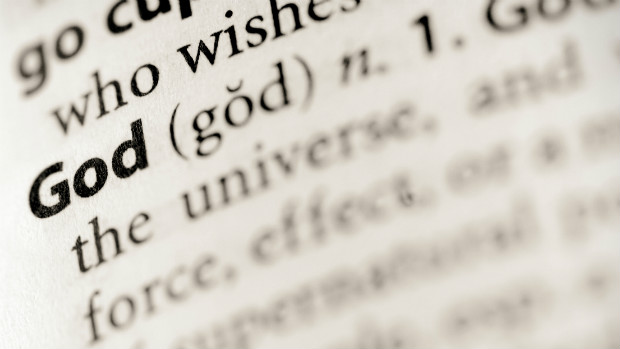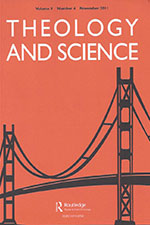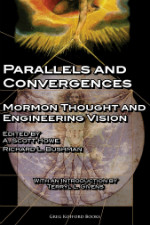The New God Argument
The New God Argument is a logical argument for faith in God. It's based on assumptions that are consistent with current science and emerging technology trends. The argument is not proof that God exists. Rather, it proves that we should trust that God exists.
The name of the argument has three meanings. Each suggests reasons why many people find it persuasive, both rationally and emotionally, in ways that other arguments fail.
- It's a new argument for God, especially in the qualitative sense. Most philosophical arguments for the existence of God have been retrospective or analytical, like the fine-tuning and ontological arguments. In contrast, this is prospective and empirical.
- It's an argument for a new God, in the paradigmatic sense. Most people haven't thought of God this way. But the argument is compatible with traditional scripture. So it inspires many with mainstream religious backgrounds who are looking for proof God is real.
- And it's an argument from a new God, in the logical sense. It deduces from the assumption that new Gods may come into being, God may create more Gods, or God may decentralize. This is an ancient and enduring religious belief, even among Christians.
The argument has implications for the philosophy of religion. But the argument is secular. It begins outside any religious doctrine. And it connects human life and human experience back to religion and a concept of God.
The New God Argument is based on five assumptions. Two describe the general possibility space for the future of humanity. Three prescribe specific possibilities that we may prefer.
The assumptions amount to trust that humanity should evolve into superintelligent posthumanity, or superhumanity. The power of superhumanity should be decentralized. And superhumanity should use its power to create emulations of its evolutionary history.
The assumptions may be false. But there are strong reasons to believe that the general possibilities are true. And there are strong reasons to trust that we can make the specific possibilities true. Indeed, we should and even must make them true, according to some conceptions of the good life and human thriving.
When taken together, the assumptions prove that superhumanity probably would be more compassionate than we are and created our world. In other words, if we trust in our own superhuman potential then we should trust that we have a compassionate creator.
In some religions, a compassionate creator may qualify as God. So trust in our own superhuman potential may entail faith in God. Atheism may entail distrust in superhuman potential generally. And it may be particularly incoherent to combine atheism with trust in our own superhuman potential.
Definitions

compassion : the limit of cooperation, or at least practically indistinguishable therefrom
cooperation : the application of intelligence in a manner that refrains from thwarting or assists with achieving decentralized goals
creation : computation : the application of intelligence
decentralized : the state of being in many different places
faith : trust : the application of intelligence in a manner that anticipates cooperation, or at least that which is practically indistinguishable therefrom
goal : purpose : a desired or willed situation
God : superhumanity that is more compassionate than we are and that created our world
humanity : all organisms of the homo sapiens species
intelligence : agency : power to achieve goals
posthumanity : evolutionary descendants of humanity
power : capacity to change situations
superhumanity : superintelligent posthumanity
superintelligence : intelligence that surpasses that of its evolutionary ancestors in every way
Faith Assumption
F1
humanity will not become extinct before evolving into superhumanity
(assumption)
Compassion Argument
CO1
EITHER humanity probably will become extinct before evolving into superhumanity
OR superhumanity probably would not have more decentralized power than humanity has
OR superhumanity probably would be more compassionate than we are
(assumption)
CO2
superhumanity probably would have more decentralized power than humanity has
(assumption)
CO3
superhumanity probably would be more compassionate than we are
(deduction from CO1, CO2, and F1)
Creation Argument
CR1
EITHER humanity probably will become extinct before evolving into superhumanity
OR superhumanity probably would not create many worlds emulating its evolutionary history
OR superhumanity probably created our world
(assumption)
CR2
superhumanity probably would create many worlds emulating its evolutionary history
(assumption)
CR3
superhumanity probably created our world
(deduction from CR1, CR2, and F1)
God Conclusion
G1
BOTH superhumanity probably would be more compassionate than we are
AND superhumanity probably created our world
(deduction from CO3 and CR3)
For Mormons
This is a presentation of the first version of the New God Argument to a Mormon audience in 2008.
For Transhumanists
This is a presentation of the second version of the argument to a secular audience in 2010.
Publications

The third version of the New God Argument is included in "What is Mormon Transhumanism?" This paper is published in volume 13 issue 2 of the journal of Theology and Science.

The second version is published in "Theological Implications of the New God Argument," Parallels and Convergences: Mormon Thought and Engineering Vision.
Commentary
Cannon, Lincoln. "Jesus Christ in the New God Argument." Lincoln Cannon. 29 Sep. 2019. Web.
Cannon, Lincoln. "Evolution of the New God Argument." Lincoln Cannon. 20 Sep. 2019. Web.
Cannon, Lincoln. "Scrutinizing Compassion in the New God Argument (Version 3.4)." Lincoln Cannon. 17 Sep. 2019. Web.
Prisco, Giulio. "From Elon Musk to Joseph Smith: a material simulation hypothesis." Turing Church. 19 May 2017. Web.
Cannon, Lincoln. "New God Argument (Version 3.3)." Lincoln Cannon. 3 June 2016. Web.
Ostler, Blaire. "Diversity of God." Blaire Ostler. 12 May 2016. Web.
Jones, Caleb. "Why I Believe: Mind and Heart." Navigating Discipleship. 28 Mar. 2016. Web.
Redding, Micah. "The New God Argument and A New Apologetics." Micah Redding. 21 Jan. 2016. Web.
Cannon, Lincoln. "New God Argument (Version 3.2)." Lincoln Cannon. 25 June 2015. Web.
Cannon, Lincoln. "New God Argument (Version 3.1)." Lincoln Cannon. 18 Apr. 2015. Web.
Cannon, Jonathan. "Reason to Believe." Rational Faiths. 21 July 2014. Web.
Cannon, Lincoln. "New God Argument (Version 3.0)." Lincoln Cannon. 9 May 2014. Web.
West, Joseph. "Theological Implications of the New God Argument." YouTube. 22 May 2012. Web.
Cannon, Lincoln. "Trust in Posthumanity and the New God Argument." Lincoln Cannon. 3 Oct. 2010. Web.
Cannon, Lincoln. "Inspired by Richard Dawkins' 'The God Delusion'." Lincoln Cannon. 27 June 2010. Web.
Cannon, Lincoln. "Theological Implications of the New God Argument." Lincoln Cannon. 26 Mar. 2010. Web.
Cannon, Lincoln. "New God Argument (Version 2.0)." Lincoln Cannon. 26 Mar. 2010. Web.
Cannon, Lincoln, Joseph West, and Chris Bradford. "The New God Argument Begins." Lincoln Cannon. 9 Aug. 2008. Web.
Cannon, Lincoln. "New God Argument (Version 1.0)." Lincoln Cannon. 8 Aug. 2008. Web.

